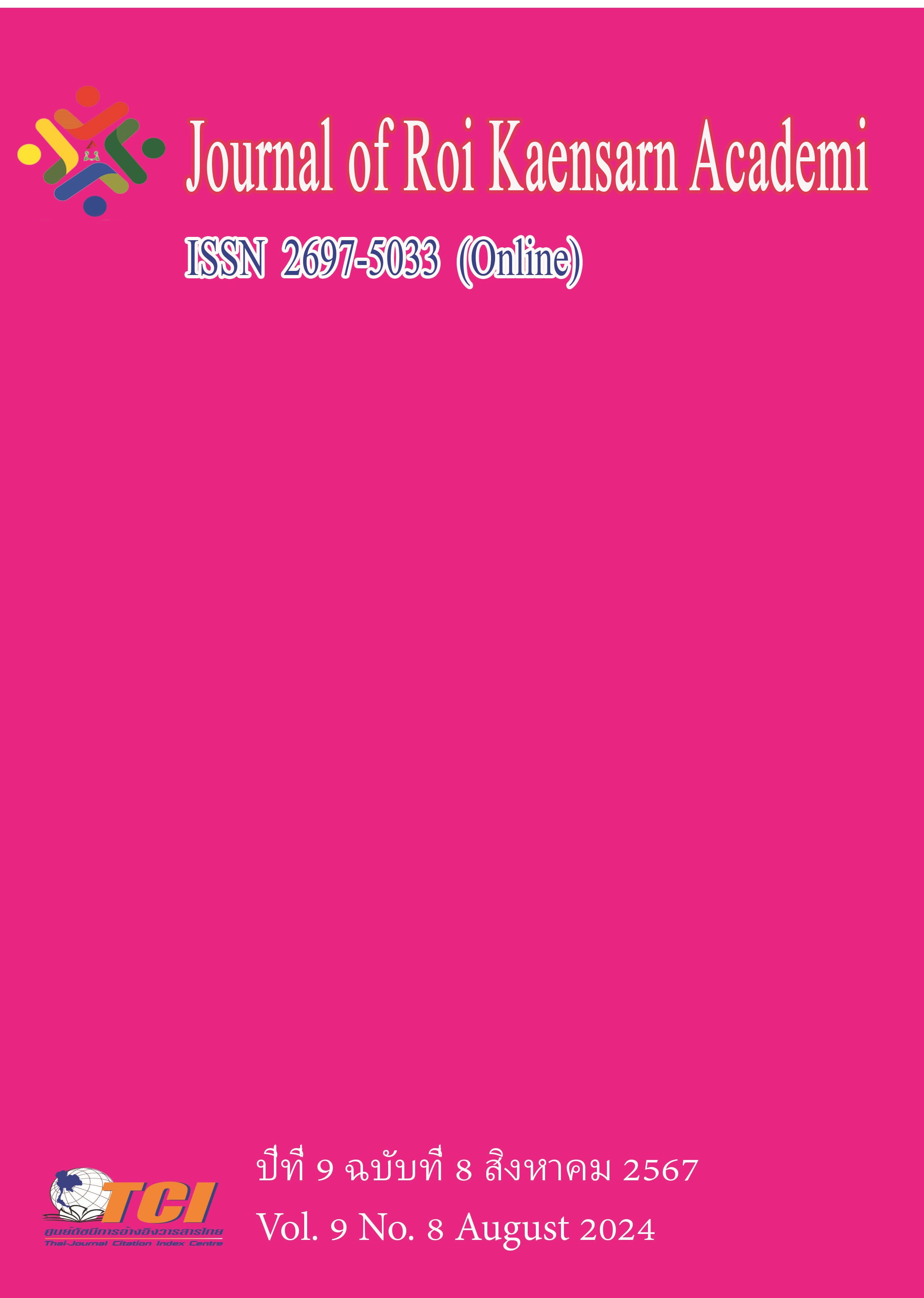The Role of Primary School Principals and Administrators in Promoting Student Achievement, Teacher Effectiveness, and a Positive School Culture
Main Article Content
บทคัดย่อ
The objectives of this research were: 1) to investigate the impact of school leadership on student achievement; 2) to explore strategies utilized by school leaders to enhance teacher effectiveness; and 3) to examine the role of school leaders in fostering positive school cultures. The sample consisted of a comprehensive review of existing literature on school leadership, teacher effectiveness, and school culture. They were selected by a systematic search of relevant databases, libraries, and scholarly journals in the field of education. The research instrument for data collection was a thorough literature review methodology. The statistics for data analysis included qualitative synthesis and thematic analysis of the collected literature.
The research results were found as follows: 1) Effective school leadership significantly influences student achievement through setting high expectations, creating supportive learning environments, and implementing strategic plans. 2) Strategies such as providing continuous professional development, promoting collaborative leadership, implementing evaluation and feedback mechanisms, and creating a positive school culture enhance teacher effectiveness. 3) School leaders play a crucial role in shaping positive school cultures by acting as cultural stewards, promoting inclusive practices, and fostering a sense of community and shared values.
Suggestions based on these findings include: 1) Implement leadership development programs focusing on instructional leadership and cultural stewardship. 2) Encourage adaptive leadership approaches to address the challenges of educational transformation. 3) Prioritize the creation of supportive and inclusive school environments that value diversity and promote open communication among all stakeholders.
Article Details
เอกสารอ้างอิง
Ambrose, E. D. (2021). The role of principals in cultivating a positive school culture (Doctoral dissertation, Stellenbosch: Stellenbosch University).
Atasoy, R. (2020). The Relationship Between School Principals' Leadership Styles, School Culture and Organizational Change. International Journal of Progressive Education, 16 (5), 256-274.
Berman, S. (2018). The Practice Base for How We Learn: Supporting Students' Social, Emotional, and Academic Development. Consensus Statements of Practice from the Council of Distinguished Educators. Aspen Institute.
Bush, T. (2018). Preparation and induction for school principals: Global perspectives. Management in Education, 32 (2), 66-71.
Bush, T. (2018). Transformational leadership: Exploring common conceptions. Educational Management Administration & Leadership, 46 (6), 883-887.
Bush, T. (2018). Transformational leadership: Exploring common conceptions. Educational Management Administration & Leadership, 46(6), 883-887.
Ciulla, J. B., & Ciulla, J. B. (2020). Ethics and effectiveness: The nature of good leadership. The search for ethics in leadership, business, and beyond, 3-32.
Daily, S. M., Mann, M. J., Kristjansson, A. L., Smith, M. L., & Zullig, K. J. (2019). School climate and academic achievement in middle and high school students. Journal of school health, 89 (3), 173-180.
Day, C., Sammons, P., & Gorgen, K. (2020). Successful School Leadership. Education development trust.
Epstein, J. L. (2018). School, family, and community partnerships: Preparing educators and improving schools. Routledge.
García, I. (2018). Adaptive leadership and social innovation: Overcoming critical theory, positivism, and postmodernism in planning education. eJournal of Public Affairs, 7 (2), 19-35.
Inceoglu, I., Thomas, G., Chu, C., Plans, D., & Gerbasi, A. (2018). Leadership behavior and employee well-being: An integrated review and a future research agenda. The Leadership Quarterly, 29 (1), 179-202.
Kalkan, Ü., Altınay Aksal, F., Altınay Gazi, Z., Atasoy, R., & Dağlı, G. (2020). The relationship between school administrators’ leadership styles, school culture, and organizational image. Sage Open, 10 (1), 2158244020902081.
Kalkan, Ü., Altınay Aksal, F., Altınay Gazi, Z., Atasoy, R., & Dağlı, G. (2020). The relationship between school administrators’ leadership styles, school culture, and organizational image. Sage Open, 10 (1), 2158244020902081.
Kim, L. E., Jörg, V., & Klassen, R. M. (2019). A meta-analysis of the effects of teacher personality on teacher effectiveness and burnout. Educational psychology review, 31, 163-195.
Lorencová, H., Jarošová, E., Avgitidou, S., & Dimitriadou, C. (2019). Critical thinking practices in teacher education programmes: a systematic review. Studies in Higher Education, 44 (5), 844-859.
Mansaray, H. E. (2019). The role of leadership style in organisational change management: a literature review. Journal of Human Resource Management, 7 (1), 18-31.
McNair, T. B., Albertine, S., McDonald, N., Major Jr, T., & Cooper, M. A. (2022). Becoming a student-ready college: A new culture of leadership for student success. John Wiley & Sons.
Mehmet, K. A. R. S., & Inandi, Y. (2018). Relationship between school principals’ leadership behaviors and teachers’ organizational trust. Eurasian Journal of Educational Research, 18 (74), 145-164.
Murphy, J. F., & Louis, K. S. (2018). Positive school leadership: Building capacity and strengthening relationships. Teachers College Press.
Ni, Y., Yan, R., & Pounder, D. (2018). Collective leadership: Principals’ decision influence and the supportive or inhibiting decision influence of other stakeholders. Educational Administration Quarterly, 54 (2), 216-248.
Ninković, S. R., & Knežević Florić, O. Č. (2018). Transformational school leadership and teacher self-efficacy as predictors of perceived collective teacher efficacy. Educational Management Administration & Leadership, 46 (1), 49-64.
Oberle, E., Domitrovich, C. E., Meyers, D. C., & Weissberg, R. P. (2020). Establishing systemic social and emotional learning approaches in schools: A framework for schoolwide implementation. In Social and Emotional Learning (pp. 6-26). Routledge.
Roberson, Q., & Perry, J. L. (2022). Inclusive leadership in thought and action: A thematic analysis. Group & Organization Management, 47 (4), 755-778.
Snyder, H. (2019). Literature review as a research methodology: An overview and guidelines. Journal of business research, 104, 333-339.
Stronge, J. H. (2018). Qualities of effective teachers. Ascd.
Tan, C. Y. (2018). Examining school leadership effects on student achievement: The role of contextual challenges and constraints. Cambridge journal of education, 48 (1), 21-45.
Tingle, E., Corrales, A., & Peters, M. L. (2019). Leadership development programs: Investing in school principals. Educational Studies, 45 (1), 1-16.
Torres, D. G. (2019). Distributed leadership, professional collaboration, and teachers’ job satisfaction in US schools. Teaching and Teacher Education, 79, 111-123.
Xie, F., & Derakhshan, A. (2021). A conceptual review of positive teacher interpersonal communication behaviors in the instructional context. Frontiers in psychology, 12, 708490.

